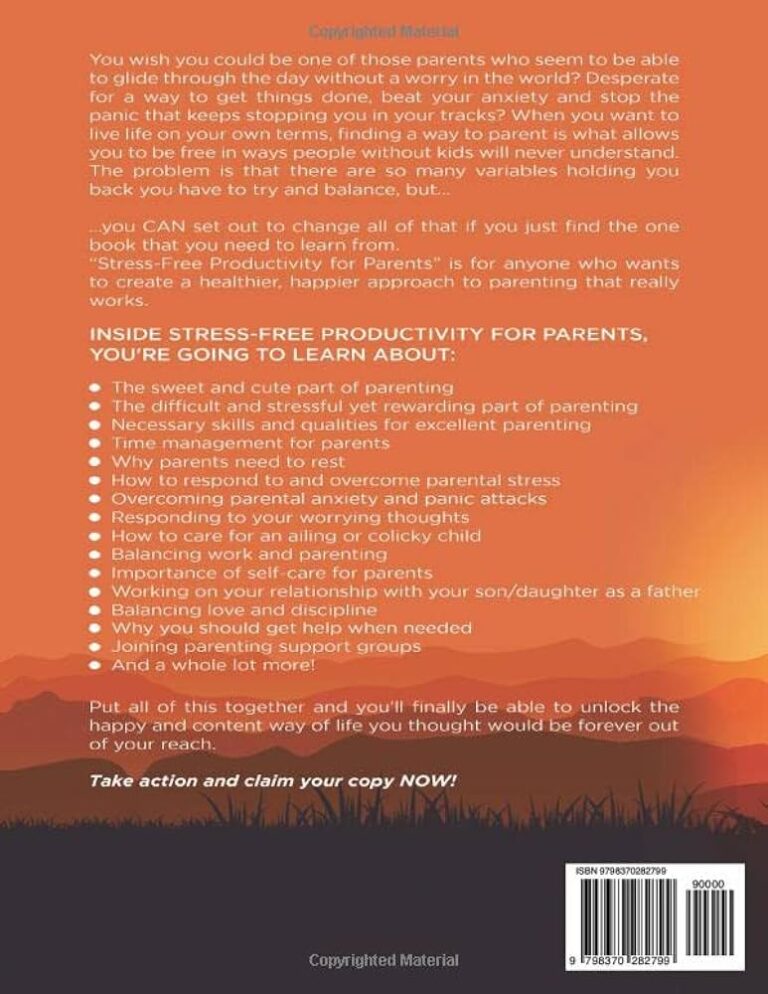How Long Should You Let a Sick Child Sleep: Expert Advice
Let your sick child sleep as much as they want, as it helps their recovery and boosts their immune system.
Understanding The Importance Of Sleep For A Sick Child
When it comes to taking care of a sick child, understanding the importance of sleep is crucial. Sleep plays a vital role in the recovery process and provides numerous benefits for the immune system and the body’s healing mechanisms. Letting a sick child sleep for adequate periods of time is essential in ensuring a speedy and effective recovery.
The Role Of Sleep In The Recovery Process
Sleep is not just a way for the body to rest; it is a crucial process that promotes healing and recovery, especially when a child is sick. During sleep, the body has the opportunity to repair damaged cells, regulate hormone production, and strengthen the immune system. When a child is ill, their body goes through a lot of stress, and sleep helps to reduce inflammation and restore balance.
How Sleep Boosts The Immune System
A well-rested body has a stronger immune system. Sleep is known to boost the production of cytokines, a type of protein that can fight off infections and inflammation. It also increases the activity of cells that destroy harmful pathogens, aiding the body’s defense mechanisms. By allowing a sick child to get sufficient sleep, you are providing them with the best possible chance to fight off the illness.
The Significance Of Rest For The Body’s Healing Mechanisms
Rest is a crucial part of the body’s healing mechanisms, and it is especially important when a child is sick. During sleep, the body enters a state of relaxation, allowing it to focus its energy on repairing damaged tissues and fighting off bacteria or viruses. By ensuring that a sick child gets enough rest, you are supporting their body’s natural healing processes and helping them recover more quickly.
In conclusion, understanding the importance of sleep for a sick child is essential for their recovery. Sleep plays a key role in the healing process, boosts the immune system, and supports the body’s healing mechanisms. By prioritizing rest and allowing a sick child to sleep, you are providing them with the best environment for a speedy recovery.
Signs To Watch For In A Sick Child’s Sleep Patterns
If your child is sick, it is best to allow them to sleep as much as they need. Extra rest helps their immune system fight the illness. However, if they continue to sleep excessively for an extended period, it’s advisable to consult a doctor.
When a child is sick, their sleep patterns tend to change. As a parent, it is important to closely monitor these changes to ensure your child is getting the rest they need for a speedy recovery. Here are some signs to watch for in a sick child’s sleep patterns:
Changes In Sleep Duration
One of the most common signs of illness in a child is a change in their sleep duration. While some children may sleep more than usual, others may experience a decrease in their sleep time. It is important to note any significant changes in their sleeping habits and consult a doctor if the altered sleep pattern persists for an extended period of time.
Variations In Sleep Quality
When a child is sick, their sleep quality may be compromised. They may experience difficulties falling asleep or staying asleep throughout the night. This can result in restlessness, frequent waking, and irritability during the day. It is important to create a soothing sleep environment and implement relaxation techniques to enhance their sleep quality during this time.
Unusual Sleep Positions Or Habits
In some cases, a sick child may exhibit unusual sleep positions or habits. They may prefer sleeping in a certain position or exhibit restless movements during sleep. These changes may be indicative of discomfort or pain caused by the illness. Observing any unusual sleep behaviors can provide valuable insights into your child’s condition and help you address their needs accordingly.
Overall, keeping a close eye on your child’s sleep patterns when they are sick is crucial for their well-being. By observing changes in sleep duration, variations in sleep quality, and any unusual sleep positions or habits, you can ensure that your child gets the rest they need to recover fully.
Determining The Ideal Amount Of Sleep For A Sick Child
When it comes to determining the ideal amount of sleep for a sick child, it is best to let them rest and allow their immune system to fight the illness. If your child is sleeping more than usual or eating less for a few days, there is no need to be concerned.
However, if these changes persist, it is recommended to consult a doctor.
Age-based Sleep Recommendations For Sick Children
When it comes to how long a sick child should sleep, it is important to consider their age. The sleep needs of children vary based on their developmental stage and overall health. Here are age-based sleep recommendations to help you determine the ideal amount of sleep for your sick child:Newborns (0-3 months)
During the newborn stage, babies can sleep anywhere from 16 to 18 hours a day, including both day and nighttime sleep. When they are sick, it is natural for newborns to sleep even more to aid in their recovery. However, if you notice any significant changes in their sleep patterns or behavior, it is best to consult with your pediatrician.Infants (4-11 months)
As your child enters the infant stage, their sleep needs decrease a bit. On average, infants sleep for about 12 to 15 hours a day, including naps. When they are sick, it is common for them to require additional rest. Pay attention to their cues and let them sleep as needed. If their illness persists, reach out to your healthcare provider for guidance.Toddlers (1-2 years)
Toddlers generally require around 11 to 14 hours of sleep, including daytime naps. When they are unwell, their sleeping patterns can be affected, and they may need even more sleep to recover. It is essential to create a comfortable sleep environment and allow them to rest as much as needed. However, if you observe any concerning symptoms or prolonged changes in their sleep, consult with a healthcare professional.Factors To Consider When Determining Sleep Needs During Illness
Determining the ideal amount of sleep for a sick child goes beyond their age. There are several factors to consider to ensure they get the rest they need for a speedy recovery:- Symptoms and severity: The type and severity of your child’s illness can impact their sleep needs. Certain illnesses, such as fevers or respiratory infections, may cause discomfort and disrupt their sleep. Monitor their symptoms and adjust their sleep routine accordingly.
- Medications: Some medications prescribed for illnesses can impact sleep patterns. Pay attention to any potential side effects and consult with your doctor if you notice any significant changes in your child’s sleep.
- Hydration and nutrition: Sick children may have decreased appetite and need extra fluids to stay hydrated. Ensure they are receiving proper nutrition and hydration during the day to support their recovery.
- Comfort and sleep environment: Create a comfortable and soothing sleep environment for your child. Keep the room temperature moderate, minimize noise disruptions, and provide cozy bedding to promote better sleep.
- Individual needs: Every child is unique, and their sleep needs can vary even when they are healthy. Take into account your child’s usual sleep patterns and preferences when determining their sleep needs during illness.
Strategies To Support Healthy Sleep In A Sick Child
When your child is sick, it’s essential to prioritize their sleep to support their recovery. Adequate rest is crucial for their immune system to fight off the illness, and it can also help alleviate symptoms like fatigue and discomfort. To ensure your sick child gets the sleep they need, consider implementing these strategies:
Creating A Comfortable Sleep Environment
A comfortable sleep environment plays a significant role in helping your child rest better. Here are some tips to create an optimal sleeping space:
- Keep the room temperature cool and comfortable. It should neither be too hot nor too cold.
- Invest in a good-quality mattress and bedding that provide adequate support and comfort.
- Ensure the room is quiet and dark. Consider using blackout curtains to block out excessive light.
- Use a humidifier if your child has congestion or a cough, as it can help ease breathing difficulties.
Establishing A Consistent Bedtime Routine
A consistent bedtime routine can help signal to your child’s body that it’s time to sleep, promoting better sleep quality. Here are some tips for establishing a bedtime routine:
- Set a regular bedtime and wake-up time, even when your child is sick. Consistency can help regulate their body clock.
- Follow a predictable sequence of activities before bed, such as a warm bath, reading a book, or listening to soothing music.
- Avoid stimulating activities or screens close to bedtime, as they can interfere with falling asleep.
- Ensure your child’s bedtime routine is relaxing and calm, creating a peaceful atmosphere for sleep.
Utilizing Soothing Techniques To Promote Relaxation
Incorporating soothing techniques into your child’s bedtime routine can help promote relaxation and induce sleep. Here are some techniques you can try:
- Gentle massages or light touch can be soothing and help your child relax.
- Playing soft, calming music or using white noise machines can create a peaceful atmosphere for sleep.
- Try using aromatherapy with lavender or chamomile essential oils, known for their calming properties.
- Engage in calming activities like deep breathing exercises or guided imagery to help your child wind down.
By creating a comfortable sleep environment, establishing a consistent bedtime routine, and utilizing soothing techniques, you can support healthy sleep in your sick child and aid in their recovery. Remember to consult with your doctor if your child’s sleep disturbances persist or worsen.
When To Seek Medical Advice Regarding A Sick Child’s Sleep
When to Seek Medical Advice Regarding a Sick Child’s Sleep
Monitoring sleep patterns for prolonged deviations from normal
Consulting healthcare professionals for persistent sleep issues during illness
If your child is sick, it’s important to pay attention to their sleep patterns. While it’s normal for a sick child to sleep more than usual and have a decreased appetite, prolonged deviations from their normal sleep routine could be cause for concern. It’s important to monitor their sleep patterns closely and look for any prolonged changes. Here are some signs to watch out for:
- Excessive sleepiness: If your child is sleeping excessively and is difficult to wake up, this could be a sign of a more serious underlying condition. Consult a healthcare professional if this continues for an extended period.
- Frequent awakenings: If your child is frequently waking up during the night and struggling to fall back asleep, it could be a sign of discomfort or pain. This could warrant medical attention to address the underlying cause of their disturbed sleep.
- Irregular sleep patterns: If your child’s sleep patterns become irregular, with significant variations in sleep duration and timing, it’s important to consult a healthcare professional to rule out any underlying health issues.
- Changes in behavior: If your child’s behavior significantly changes during their illness, such as being unusually irritable or lethargic, it could be a sign that something more serious is going on. This should be discussed with a healthcare professional.
If you notice any of these deviations from your child’s normal sleep patterns, it’s essential to seek medical advice. Consulting a healthcare professional can help determine the underlying cause of the sleep issues and provide appropriate treatment or intervention if necessary.
In addition to monitoring sleep patterns, it’s important to consult healthcare professionals for persistent sleep issues during illness. While some sleep disturbances may be expected during illness, if your child’s sleep problems persist for an extended period or worsen over time, it’s crucial to seek medical advice.
- Chronic sleep disturbances: If your child’s sleep problems continue for an extended period, despite their illness improving, it’s wise to consult a healthcare professional. They can assess and address any underlying issues contributing to the sleep disturbances.
- Severe sleep disruptions: If your child’s sleep disruptions are severe and significantly impacting their overall well-being and recovery, it’s crucial to consult a healthcare professional. They can provide guidance and appropriate interventions to help improve your child’s sleep during their illness.
- Persistent discomfort: If your child is experiencing persistent discomfort or pain that is interfering with their ability to sleep, it’s important to consult a healthcare professional. They can help identify and address the underlying cause of their discomfort.

Credit: huckleberrycare.com
Frequently Asked Questions Of How Long Should You Let A Sick Child Sleep
Should You Let A Sick Child Sleep All Day?
When a child is sick, it is important to let them rest and sleep as much as they need. This helps their immune system fight the illness and aids in their recovery. It is normal if they sleep more than usual or eat less.
However, if these changes persist for an extended period, it is best to consult a doctor.
Should I Let My Toddler Oversleep When Sick?
It is fine to let your toddler oversleep when sick as long as they are still settling and sleeping well at night. Rest helps their immune system fight the illness, and it’s normal for them to sleep more and eat less during this time.
However, if this continues for an extended period, consult a doctor.
Is It Okay To Sleep All Day When Sick?
It’s okay to let your child sleep all day when sick. Resting helps their immune system fight the illness. If your child sleeps more than usual or eats less, don’t worry. If it continues for a long time, consult a doctor.
Rest is essential for their recovery.
Can You Let A Sick Toddler Cry It Out?
It is okay to let a sick toddler cry it out for 10 to 15 minutes to see if they can settle themselves. If they continue to cry, it is important to attend to their needs. Rest and sleep are crucial for their recovery.
Conclusion
Letting a sick child sleep is a crucial part of their recovery process. It allows their immune system to work efficiently and fight off the illness. It’s normal for a sick child to sleep more than usual and eat less for a few days.
However, if this pattern continues for an extended period, it’s advisable to consult a doctor. Remember to prioritize your child’s rest and provide them with the necessary care during their sickness.








